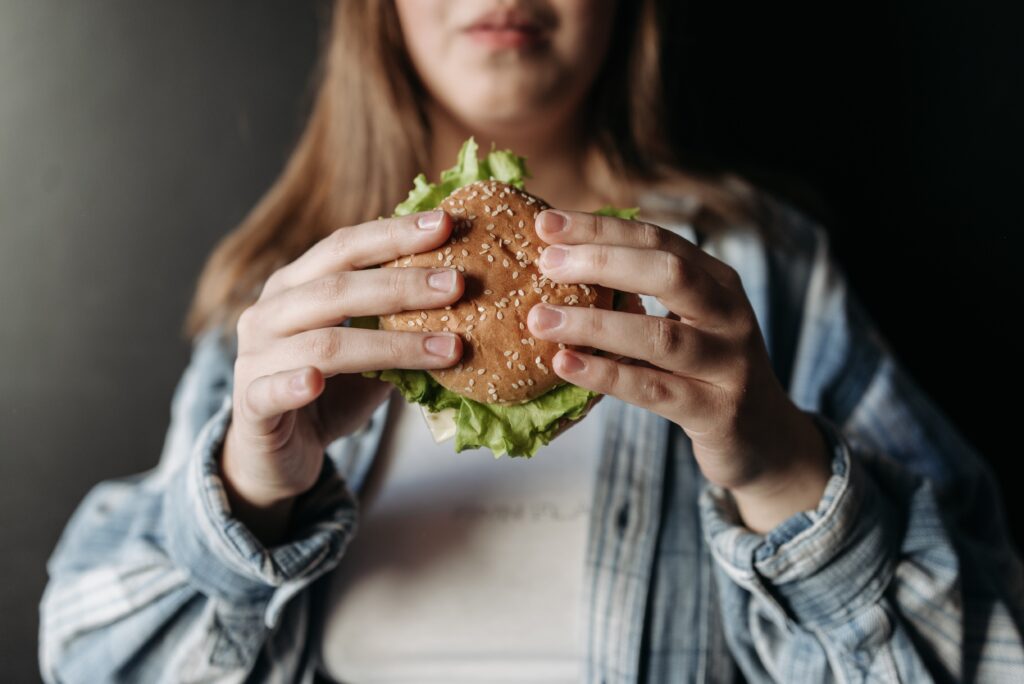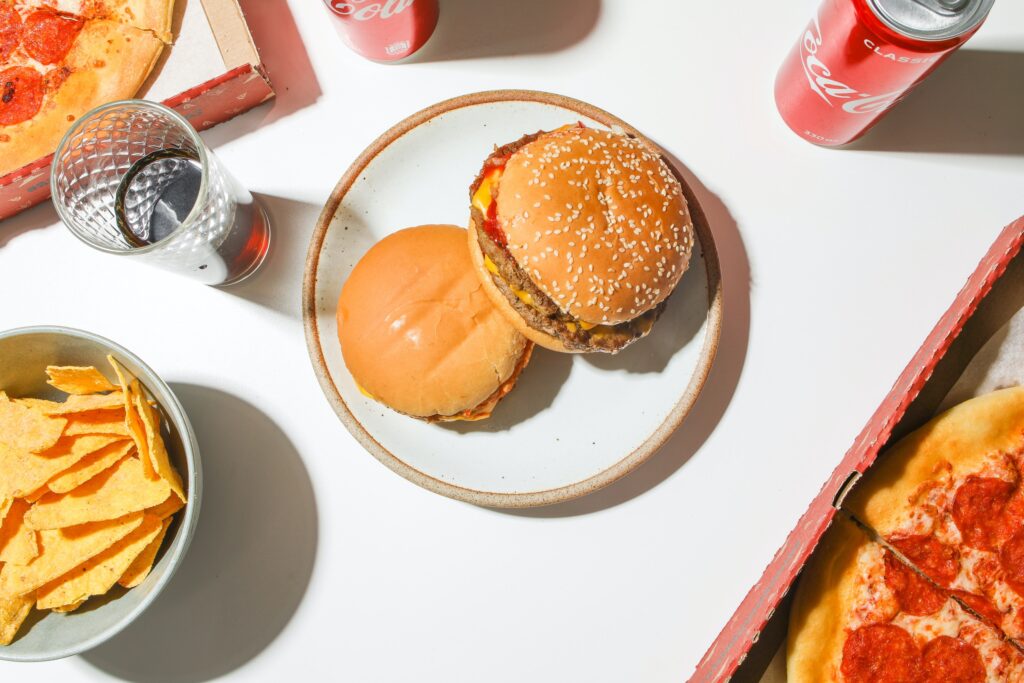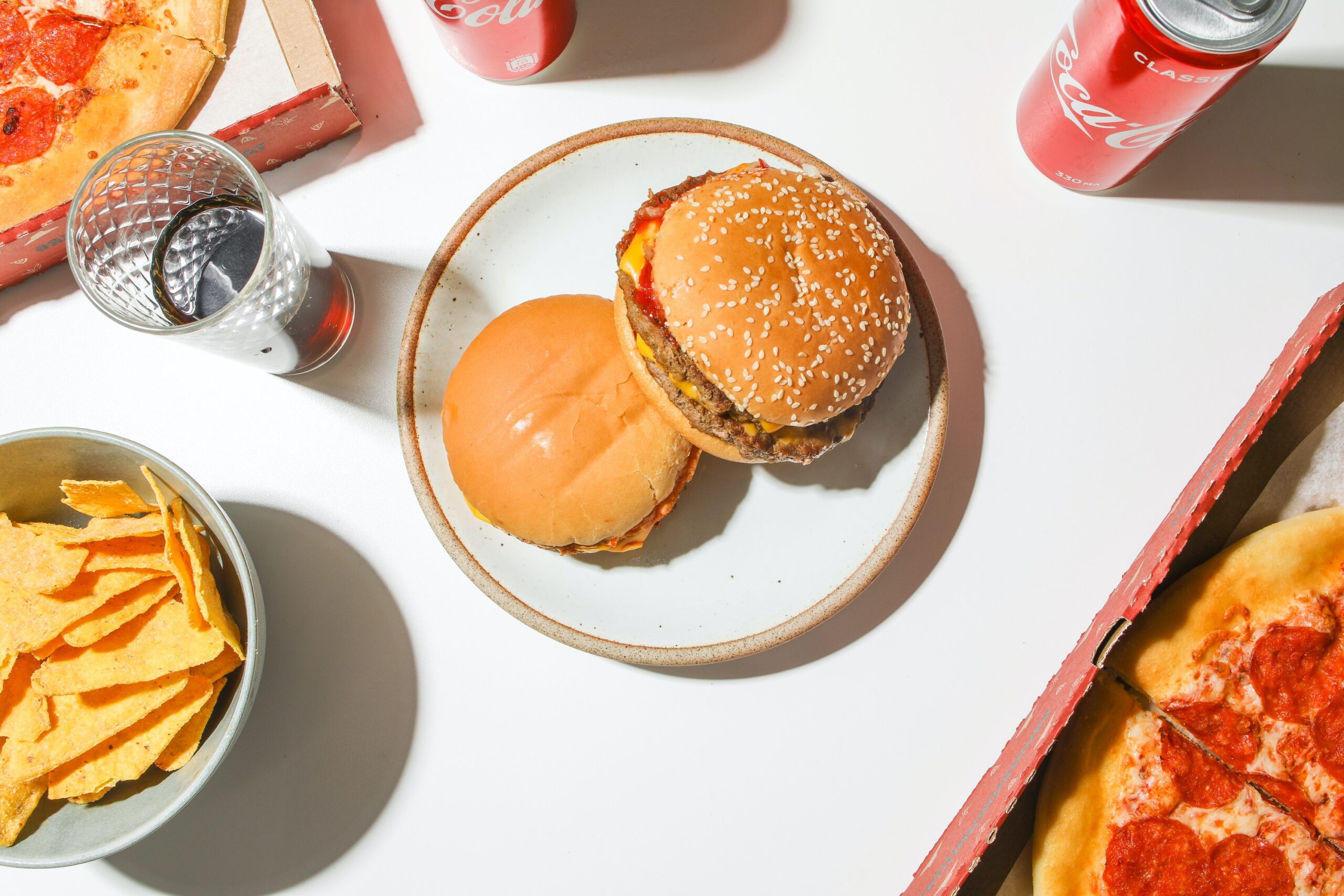
Let’s discuss the concept of ‘emotional eating’ and what you can do about it.
Surprisingly most people have turned toward food to help manage feelings at some point. Perhaps you had a stressful day at work or felt bored, so you use food to lessen those feelings without thinking about it. On the other hand, when you feel happy and excited, you may turn towards eating as a way to celebrate, relax, or reward yourself. Does any of this sound familiar?
Emotional eating can be triggered by factors such as external situations or events, alcohol or drug use, or fluctuations in energy or hormonal levels, which can result in a negative or positive mood. In these scenarios, an individual might start to use food to cope.
Stress is one of the most common triggers for emotional eating. If you are feeling inundated with tasks, overwhelmed, or out of control in some way, emotional eating can be a quick solution to help us feel better. It can provide a sense of emotional comfort and safety, and the more we rely on this, the more likely we are to keep turning to food for these reasons. It becomes a habit to turn to food in response to certain mood states.

Why do people engage in emotional eating?
In understanding why someone engages in emotional eating it is important to look at external factors and ask questions associated with how food has been presented in that individual’s life. Some questions to consider:
+ Has food been a regular form of escape or avoidance for you? Does your love for food provide the greatest sources of comfort and pleasure for you? Was food a part of your culture and present in ample amounts at celebrations? Were there regular feasts? Were you raised under more food-restricted conditions?
+ Did financial freedom or financial restriction influence what you/your family chose to eat?
+ Was food tightly controlled in your family for other reasons, like beliefs about the consequences of eating ‘too much’ or ‘too often’?
+ All-or-nothing thinking patterns also result in either eating too much or not eating at all. Perhaps you even oscillate between a restriction mindset and an indulgence mindset?
+ Have you had body image concerns?
Your relationship with food and eating can also be linked to body shape, weight and appearance. If you were labelled ‘fat’ or ‘thin’, had internal/external pressures to look a certain way, you may have restricted what you ate for a long period of time, until you couldn’t any more.
Perhaps you rebelled against messages from others that you were ‘too big’ by eating more and ensuring that their messages would not influence you. Some people even use eating as a way to punish themselves in moments of guilt, or to punish others who might shame them.
Has the fear of weight gain led to engaging in different patterns of eating over time and altered your relationship with food. What images or memories might you associate with weight gain? What is your personal history of people around you gaining weight, or even of yourself gaining weight at different times in your life? What emotional response do you notice when you recall these memories or images?
…..
Being curious about your history with food can help identify what has contributed towards your emotional eating without blame and judgment, because blame and judgment.
When you look at how food was represented in your life, you can gain real insight into what has triggered your emotional eating and gain insight into how you can help address it in the future. Although it is important to remember that there is nothing wrong with emotional eating on an occasion; however, when it starts to impact your life and become problematic, it is important to look at strategies to address it.

Too much of anything is problematic!
Emotional eating is considered problematic when food is consistently used as a way to regulate how you feel. A solution such as emotional eating is great when it works, however long term use and greater frequency and dependency and worsening consequences can become increasingly problematic.
Eating as a quick emotional fix can make us feel worse long-term because the feelings of guilt, shame, sadness, and frustration can increase.
Other negative consequences include a deterioration in physical and psychological wellbeing, unnecessary weight gain resulting in increased medical conditions and illnesses, financial or social consequences, increased avoidance of previously pleasurable and meaningful activities, increased preoccupation with food and eating, and greater time spent on food and eating to the detriment of other areas of our lives and relationships.
An obvious problem is the types of foods people often turn towards when emotionally eating. These foods tend to be highly processed, with high contents of sugar, salt, and unhealthy fats. Unfortunately, these poor food choices influence the pleasure centres of your brain and can become unhelpfully reinforcing over time, meaning that you will crave these types of foods more and more when you feel a certain way
If the frequency or severity of emotional eating increases, this could turn into emotional overeating or binge eating, where there is a sense that one has lost control over eating, and physical cues of hunger can be lost.

Finding a solution to the problem.
It is important to eat regularly, using an appropriate variety of food groups to support a nourishing diet, while it is also important to allow yourself to indulge in ‘treat foods’ occasionally.
If you’re unsure what daily food intake should look like for your nutritional and energy requirements, consult an accredited dietitian. Increase your awareness of unhelpful emotional eating patterns and develop a plan on how you can tackle emotional eating before, during and after it occurs.
It is important to be realistic and be understanding towards yourself, as you are bound to make mistakes and slip up. Make a note of why you need to make these changes and place them somewhere that you can easily review, for when you forget why you have chosen to change your relationship with eating. It is vital to be able to remember your ‘why’ you are on this journey.
If you want further specialised support around this issue, we recommend seeing a health professional like your GP, one of our psychologist’s or dietitian for more help and input. Like any habit, you can change the way you relate to food and eating, so reach out for that extra support if needed.

